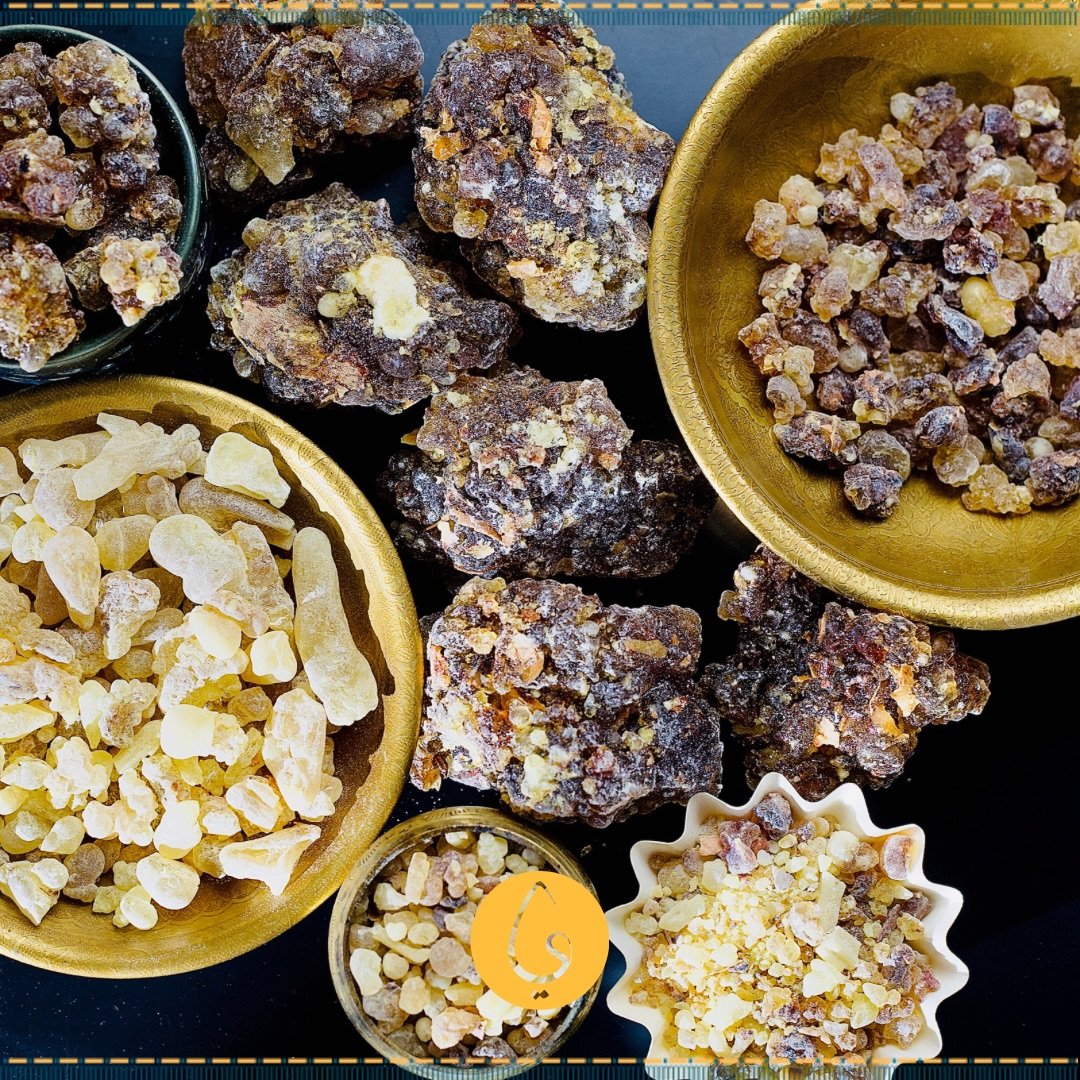Unveiling the Benefits of Frankincense
Frankincense
Boswellia carteri
Latin Name: Boswellia carteri
Chemistry: alpha-pinene, beta-pinene, limonene, sabinene
Aroma: resinous, citrus, woody
Good for Relaxation, Anti-inflammation, and respiratory issues
Energetics: Calming, grounding, comforting
Traditional use: Frankincense resin is traditionally used for various cultural and religious practices and in traditional medicine. It has been used for perfume and personal care products since ancient Egyptian times and was a prized ingredient in many incense and perfume formulas found on temple walls and papyrus scrolls.
Frankincense essential oil
Frankincense has been used for centuries in various cultural and religious practices.
Reducing stress and anxiety: Frankincense essential oil has a calming effect on the mind and body and has been used to reduce stress, anxiety, and depression. It may help to reduce feelings of overwhelm and promote a sense of relaxation and calm.
Boosting the immune system: Frankincense essential oil is believed to have immune-boosting properties and may help to support the body's natural defences against illness and disease.
Improving skin health: Frankincense essential oil is often used in skincare products due to its anti-inflammatory and astringent properties. It may help to reduce the appearance of scars, blemishes, and fine lines and improve the overall tone and texture of the skin.
Promoting oral health: Frankincense essential oil has been used traditionally to improve oral health and freshen breath. It may help to kill bacteria in the mouth and prevent the development of cavities and gum disease.
Supporting respiratory health: Frankincense essential oil may help to relieve symptoms of respiratory issues such as coughing, bronchitis, and asthma. It may also help to reduce inflammation in the respiratory system and improve overall respiratory function.
Burning frankincense resin,
A practice, rooted in ancient traditions releases a woody, citrus-fresh aroma cherished for centuries in spiritual rituals, meditation, and purification ceremonies. Traditionally, the resin was burned to cleanse spaces, enhance focus during prayer, and create a calming, sacred atmosphere. Modern use continues to embrace these benefits, with the resin's smoke promoting relaxation, reducing stress, and supporting emotional well-being. For a gentler scent release, smokeless burning can be achieved by placing the resin on a heat-safe dish over indirect heat, such as a tea light, allowing the bright, fresh aroma to diffuse subtly without the intensity of smoke. This method also preserves the resin's complex fragrance profile while naturally purifying the air.
Frankincense CO2 extract
is a concentrated form of frankincense essential oil that is made using the supercritical fluid extraction process. In this process, carbon dioxide (CO2) is used as a solvent to extract the essential oils from the resin of the Boswellia tree. The resulting extract is a highly concentrated form of frankincense essential oil that is often used in high-quality aromatherapy and skincare products.
Some general essential oil safety rules:
Do not consume essential oils internally.
Do not use essential oils undiluted.
Seek medical advice or advice from a qualified aromatherapist if you are on prescribed medication or suffer from any long-term illness.
Consult with a qualified aromatherapist before using essential oils with children or the elderly.
REFERENCE
2- Madeleine Kerkhof-Knapp Hayes (2015) Complementary Nursing in End of Life Care. Wernhout (NL): Kicozo - Knowledge Institute for Complementary Nursing




